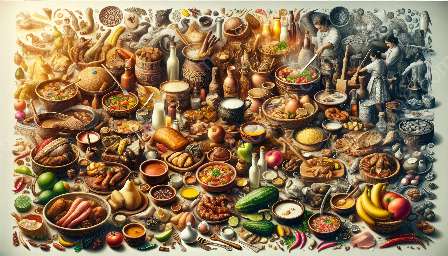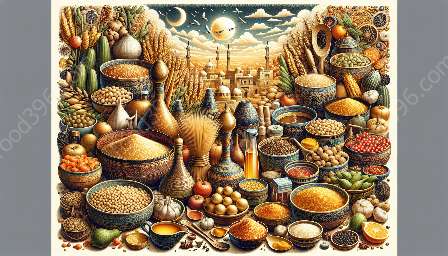Indigenous communities around the world possess unique traditional food cultures that are deeply intertwined with their identity and heritage. These traditional food systems not only sustain the community’s nutritional needs but also play a vital role in preserving their customs and connection to the land. From rituals and celebrations to daily sustenance, the traditional foods and culinary practices of indigenous communities are a testament to their resilience and wisdom.
Preservation of Cultural Identity
The food and culinary traditions within indigenous communities are central to their cultural identity. These traditions have been passed down through generations, carrying profound insights into the people's history, values, and way of life. The preparation, sharing, and consumption of traditional foods are often accompanied by stories, songs, and ceremonies that strengthen the community’s ties to their ancestors and the natural world.
Heritage and Connection to the Land
Traditional food culture in indigenous communities reflects a deep-rooted connection to the land and ecosystems. The harvesting, farming, and gathering practices are in harmony with nature, embodying sustainable and regenerative approaches that have sustained the environment for centuries. Moreover, the traditional knowledge of native plants, fishing techniques, and hunting methods not only ensures food security but also fosters a profound respect for biodiversity and ecological balance.
Rituals and Celebrations
The preparation and sharing of traditional foods are often central to the community’s rituals and celebrations. Whether it’s a bountiful harvest, a rite of passage, or a spiritual ceremony, traditional foods play a symbolic role in honoring the occasion and strengthening social cohesion. The recipes and cooking methods are imbued with spiritual significance, reflecting a holistic approach to nourishment that encompasses the physical, emotional, and spiritual well-being of the community.
Challenges and Revitalization
Despite the resilience of traditional food culture, indigenous communities face numerous challenges that threaten their culinary heritage. Factors such as environmental degradation, loss of traditional territories, and socio-economic pressures have led to the erosion of traditional food systems. Yet, there is a growing movement towards revitalizing traditional food culture, driven by indigenous-led initiatives, advocacy for food sovereignty, and the recognition of traditional knowledge as a critical part of sustainable development.
Preserving Traditional Knowledge
The preservation of traditional food culture is crucial for maintaining the resilience and well-being of indigenous communities. Efforts to document and safeguard traditional recipes, agricultural practices, and culinary wisdom are essential in passing on this invaluable knowledge to future generations. By supporting traditional food systems, communities can not only strengthen their cultural resilience but also contribute to global efforts for biodiversity conservation and sustainable food production.
Exploring traditional food culture and identity in indigenous communities offers a glimpse into the intricate tapestry of human heritage and resilience. These culinary traditions are not only a source of nourishment but also a reflection of a profound connection to the land, community, and ancestral wisdom that continues to inspire and sustain indigenous cultures around the world.



